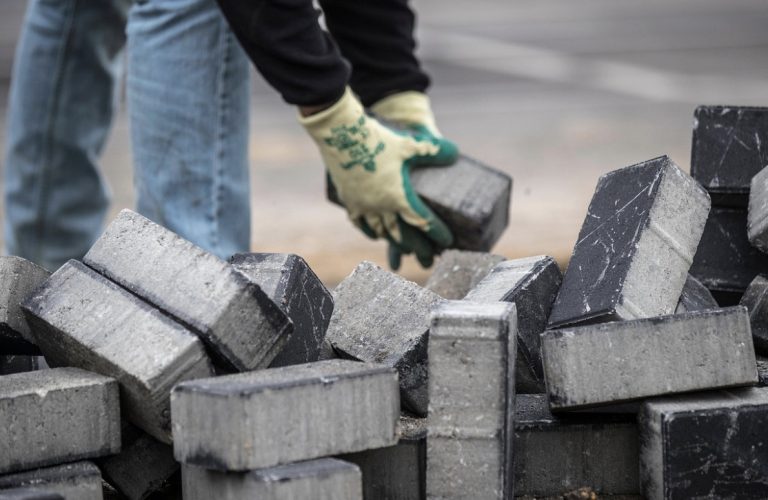Concrete grinding is a critical process for various industries, ensuring surface preparations for coatings, floor improvements, and structural maintenance. The procurement of the right equipment is essential for meeting operational demands and project specifications.
Human Resources (HR) plays a pivotal role in facilitating this procurement process, ensuring businesses have access to effective tools and fostering a culture of collaboration among stakeholders. This article explores how HR can actively support organizations in acquiring the necessary equipment for successful concrete grinding operations.
Identifying Organizational Needs
A crucial first step in the procurement process is identifying the organization’s specific requirements. HR can collaborate with operational teams to gather inputs about the nature of concrete grinding tasks, including the scale of projects and the desired outcomes.
HR may assist in identifying the performance requirements that the equipment must fulfill by collaborating closely with technical teams and project management. Conducting needs assessments allows the business to pinpoint the types of concrete grinding equipment most suited for various projects.
Understanding these criteria enables effective decision-making in the selection process, ensuring that the organization invests in equipment aligned with its operational goals. The involvement of HR fosters an inclusive approach, as different departments can contribute to the assessment, which leads to better-informed procurement decisions.
Finding the right equipment becomes much simpler with a clear understanding of the requirements. The team behind DiamaPro says that selecting equipment should consider factors like power, versatility, and ease of use. Different projects may require specific features, such as dust collection systems or varying power capacities.
Researching and comparing different models can help ensure you invest in equipment that meets your project’s demands. Reading user reviews and consulting with industry experts can also provide valuable insights into performance and durability.
Leveraging Collaborative Procurement Processes
The procurement process must be a collaborative effort among various departments. HR can facilitate communication between operations, finance, and procurement teams to streamline the flow of information. This collaboration can mitigate the risks of misunderstandings and ensure that everyone is aligned on the equipment specifications. An essential strategy is forming cross-functional teams that include representatives from all relevant departments.
HR can guarantee that all viewpoints are taken into account throughout the equipment selection process by including a variety of stakeholders. This approach allows for a comprehensive evaluation of options, which is crucial when assessing different suppliers and their offerings. The company can find the best equipment options that meet functional and financial needs by putting a high priority on cooperation.
Negotiating with Suppliers
Negotiating with equipment suppliers is a key aspect where HR can assist by advocating for the company’s needs. HR professionals can work closely with procurement experts to develop negotiation strategies that focus on getting favorable terms. Researching suppliers and understanding their offerings empowers HR teams to communicate requirements and expectations during negotiations.
In negotiation scenarios, transparency is critical. HR can play a role in ensuring that all relevant data, such as budget constraints and project deadlines, are communicated to the suppliers. This transparency helps establish trust and can lead to better pricing and service agreements. Keeping communication lines open with suppliers strengthens relationships over time, which may prove beneficial for future procurement needs.
Implementing Training and Onboarding Programs
Once the equipment is procured, HR’s role transitions into implementation. Training staff on how to effectively use the new concrete grinding equipment is essential for maximizing its potential. HR can design and deliver training programs that help employees familiarize themselves with the tools and their safe operation.
Effective onboarding is vital for new employees who join teams after the procurement phase. Creating comprehensive training resources ensures that all staff members are adequately prepared to operate the equipment. Continuous learning opportunities further enhance staff skills and adapt to advancements in equipment technology.
Monitoring Performance and Evaluating Success
After the equipment is in use, HR can carry out evaluations to monitor its performance. Gathering feedback from operators and project managers regarding the equipment’s functionality and its impact on productivity helps in assessing the overall success of the procurement process. Metrics such as project completion times, quality of finished work, and employee satisfaction provide valuable insights that inform future procurement initiatives.
This assessment phase is crucial for continuous improvement. HR can document lessons learned during the procurement process and the performance of the equipment, creating a knowledge base for future reference.
The ability to adapt and refine procurement strategies will lead to better equipment choices that suit the organization’s needs in the long run. Without effective HR involvement, the procurement process can lack the necessary structure, significantly impacting operational efficiency.
By recognizing its role in managing equipment procurement for concrete grinding, organizations can ensure they remain competitive and equipped to meet project demands. HR serves as a vital link between departments, forging partnerships that lead to informed decisions. Facilitating vendor negotiations, conducting employee training sessions, and ongoing performance evaluations exemplify how HR can enhance the procurement process, ensuring the right concrete grinding equipment is always on hand.



0 Comments